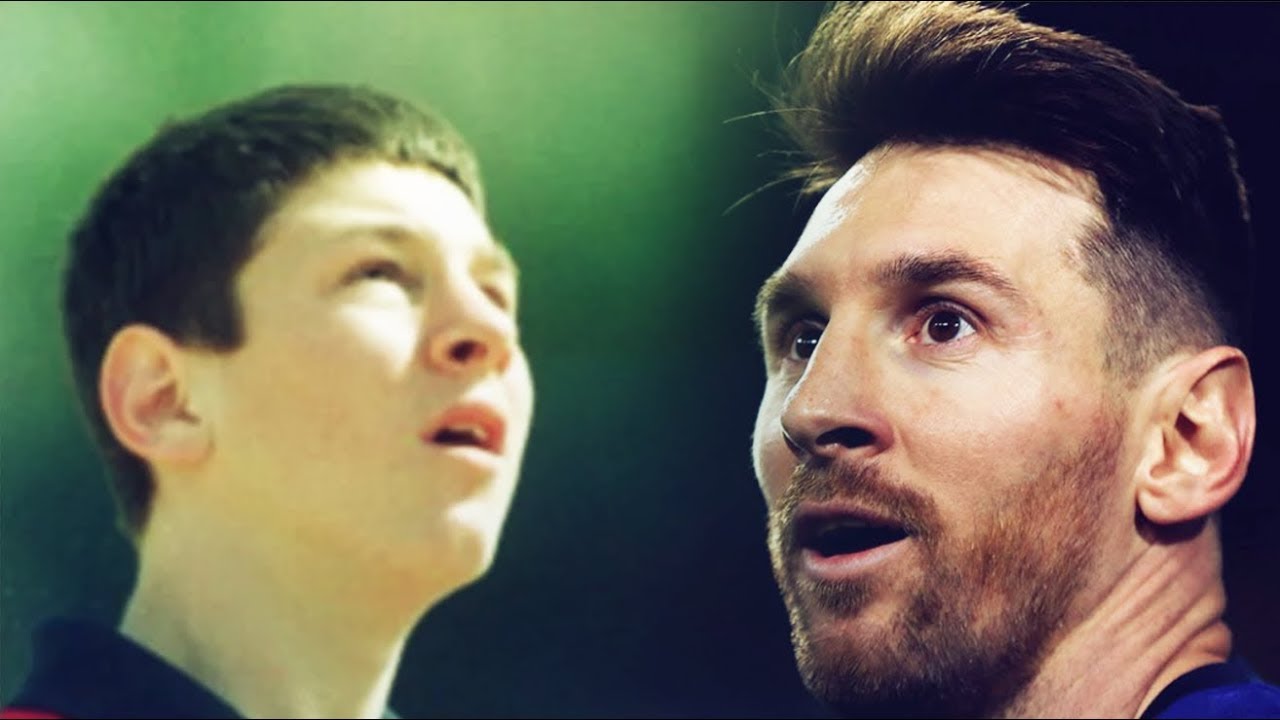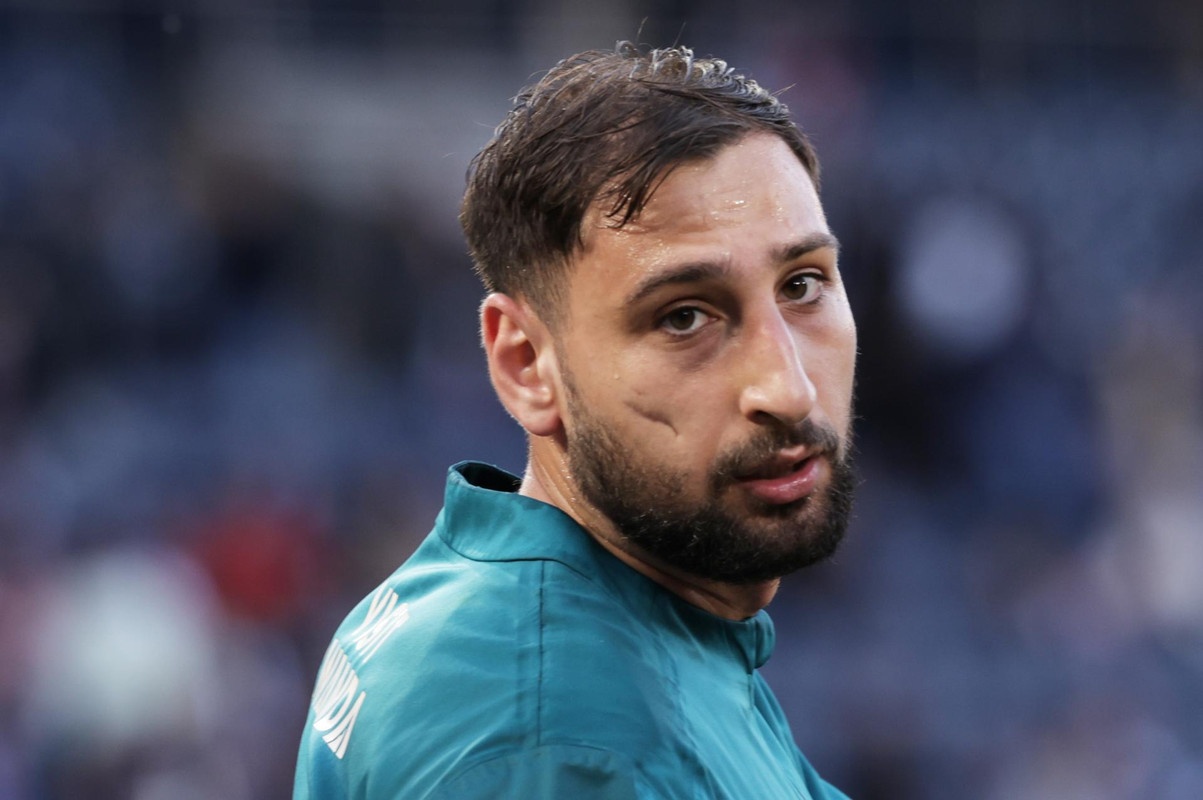Does Messi Have Autism?

Leo Messi is one of the most talented people on the planet. But beyond his football genius, some other topics are circulating in the internet – one of them being related to his personal traits. That’s why, we’ll touch base on the topic of whether Lionel Messi has some sort of autism.
2 years ago
Lionel Messi is a phenomenon, renowned for his remarkable talent, intense focus, and unmatched dedication to the sport. Throughout his career, Messi has displayed a certain uniqueness, leading to speculation and rumors about whether he has autism or Asperger's syndrome. Some of the traits contributing to this conjecture include his introverted nature and shyness, characteristics often found in individuals with these conditions.
The rumors surrounding Messi's potential diagnosis started when he was young and were propelled by his exceptional ability to concentrate on the game, a characteristic that often mirrors the intense interests or preoccupations common among those with Asperger's syndrome or autism.
Despite these speculations, it is important to highlight that neither Messi nor his family have ever publicly confirmed that he has been diagnosed with either autism or Asperger's syndrome. Diagnosing autism or Asperger's requires a comprehensive evaluation by qualified professionals, and it is neither ethical nor accurate to attribute a diagnosis based on observed traits or behaviors alone.
Furthermore, whether Messi has autism or Asperger's syndrome is irrelevant to his success as a footballer. His accomplishments in the sport stand on their own, independent of any potential diagnosis. Messi's excellence on the pitch is a result of his talent, dedication, hard work, and love for football.
Autism, or Autism Spectrum Disorder (ASD), is a complex neurological and developmental condition that typically appears during early childhood and lasts throughout a person's life. It affects a person's social interaction, communication, interests, and behavior. The term 'spectrum' is used because the symptoms and severity can vary widely from person to person.
Some individuals with ASD may be fully independent and live a normal life, while others may require significant support with daily activities. Characteristics of autism include difficulties in social communication and interaction, restricted and repetitive patterns of behavior, and unique strengths and differences.
The exact cause of autism remains unknown, but it is believed to be a combination of genetic and environmental factors. Although there is no cure for autism, early intervention, specialized education, and therapeutic strategies can help individuals with ASD improve their abilities and reduce symptoms.
Asperger's syndrome, also known as Asperger Disorder or simply Asperger's, is a type of pervasive developmental disorder which is classified as part of the autism spectrum. The main distinguishing factor of Asperger's syndrome from other disorders on the autism spectrum is that individuals with Asperger's typically have preserved language skills and intellectual ability.
Individuals with Asperger's syndrome usually exhibit difficulties in social interaction and nonverbal communication alongside restricted and repetitive patterns of behavior and interests. They often have a limited range of interests, but they will be deeply focused on a subject that they are passionate about.
Despite having normal to high intelligence, people with Asperger's may find it hard to understand social cues or express their feelings. Unlike some forms of autism, Asperger's doesn't generally delay language skills or cognitive development. With appropriate support and intervention, people with Asperger's can lead full and independent lives.
In recent years, there's been speculation about whether Lionel Messi, the Argentine soccer superstar, is on the autism spectrum. Rumors began swirling after a statement by former footballer and current politician, Romario, in 2013, citing an article that suggested Messi might have Asperger's Syndrome, a type of high-functioning autism. This conjecture has been bolstered by anecdotes highlighting Messi's behavior aligning with autistic traits.
For instance, Messi was reported to have stepped onto the pitch with a plastic spoon in his mouth, refusing to remove it until the end of the session. This action might be perceived as an autism-related mannerism, but it was also claimed to be Messi's way of showing annoyance. His reasoning was unknown, and nobody attempted to uncover it.
Additionally, Messi's pronounced shyness, such as preferring to text significant news rather than conveying it face-to-face and his perceived timidity at school, have further fueled the speculation. In one reported instance, a friend raised their hand on Messi's behalf when a teacher posed a question, suggestive of social difficulties commonly associated with Asperger's.
However, it's important to note that such traits can also be found in people without autism. Also, while team sports might pose challenges for children with Asperger's, Messi's agility and quick perception, both on and off the field, contradict this typical difficulty.
Reports from journalist Cameron Ridgway and others have suggested that Messi might have been diagnosed with Asperger's Syndrome at the age of 9, and that he was even referred to as 'el pequeno mudito', meaning 'the little mute', for his quiet demeanor as a child.
Despite the circulating rumors and speculations, Messi has never publicly confirmed or denied whether he has autism or Asperger's Syndrome. Meanwhile, numerous autism awareness associations have praised him as an example of a high-functioning individual potentially living with Asperger's, but without any substantiated medical diagnosis, these remain mere speculations.
As the discourse around Lionel Messi's potential autism or Asperger's Syndrome continues, refocusing the narrative on his remarkable football career is crucial. The relentless dissection of his personal life can often cloud the extraordinary contributions he has made to the sport. Messi, undoubtedly one of the most dominant players of all time, has demonstrated exceptional skills, agility, and quick thinking that have continuously amazed spectators worldwide.
Instead of speculating about his personal circumstances or possible medical conditions, it would be far more constructive and respectful to admire the spectacular legacy he is creating in the world of football. After all, personal medical matters should remain private unless the individual chooses to share them, and Messi has not done so.
The rumors surrounding Messi's potential diagnosis started when he was young and were propelled by his exceptional ability to concentrate on the game, a characteristic that often mirrors the intense interests or preoccupations common among those with Asperger's syndrome or autism.
Despite these speculations, it is important to highlight that neither Messi nor his family have ever publicly confirmed that he has been diagnosed with either autism or Asperger's syndrome. Diagnosing autism or Asperger's requires a comprehensive evaluation by qualified professionals, and it is neither ethical nor accurate to attribute a diagnosis based on observed traits or behaviors alone.
Furthermore, whether Messi has autism or Asperger's syndrome is irrelevant to his success as a footballer. His accomplishments in the sport stand on their own, independent of any potential diagnosis. Messi's excellence on the pitch is a result of his talent, dedication, hard work, and love for football.
What is autism?
Autism, or Autism Spectrum Disorder (ASD), is a complex neurological and developmental condition that typically appears during early childhood and lasts throughout a person's life. It affects a person's social interaction, communication, interests, and behavior. The term 'spectrum' is used because the symptoms and severity can vary widely from person to person.
Some individuals with ASD may be fully independent and live a normal life, while others may require significant support with daily activities. Characteristics of autism include difficulties in social communication and interaction, restricted and repetitive patterns of behavior, and unique strengths and differences.
The exact cause of autism remains unknown, but it is believed to be a combination of genetic and environmental factors. Although there is no cure for autism, early intervention, specialized education, and therapeutic strategies can help individuals with ASD improve their abilities and reduce symptoms.
What is Asperger’s syndrome?
Asperger's syndrome, also known as Asperger Disorder or simply Asperger's, is a type of pervasive developmental disorder which is classified as part of the autism spectrum. The main distinguishing factor of Asperger's syndrome from other disorders on the autism spectrum is that individuals with Asperger's typically have preserved language skills and intellectual ability.
Individuals with Asperger's syndrome usually exhibit difficulties in social interaction and nonverbal communication alongside restricted and repetitive patterns of behavior and interests. They often have a limited range of interests, but they will be deeply focused on a subject that they are passionate about.
Despite having normal to high intelligence, people with Asperger's may find it hard to understand social cues or express their feelings. Unlike some forms of autism, Asperger's doesn't generally delay language skills or cognitive development. With appropriate support and intervention, people with Asperger's can lead full and independent lives.
Is Messi autistic?
In recent years, there's been speculation about whether Lionel Messi, the Argentine soccer superstar, is on the autism spectrum. Rumors began swirling after a statement by former footballer and current politician, Romario, in 2013, citing an article that suggested Messi might have Asperger's Syndrome, a type of high-functioning autism. This conjecture has been bolstered by anecdotes highlighting Messi's behavior aligning with autistic traits.
For instance, Messi was reported to have stepped onto the pitch with a plastic spoon in his mouth, refusing to remove it until the end of the session. This action might be perceived as an autism-related mannerism, but it was also claimed to be Messi's way of showing annoyance. His reasoning was unknown, and nobody attempted to uncover it.
Additionally, Messi's pronounced shyness, such as preferring to text significant news rather than conveying it face-to-face and his perceived timidity at school, have further fueled the speculation. In one reported instance, a friend raised their hand on Messi's behalf when a teacher posed a question, suggestive of social difficulties commonly associated with Asperger's.
However, it's important to note that such traits can also be found in people without autism. Also, while team sports might pose challenges for children with Asperger's, Messi's agility and quick perception, both on and off the field, contradict this typical difficulty.
Reports from journalist Cameron Ridgway and others have suggested that Messi might have been diagnosed with Asperger's Syndrome at the age of 9, and that he was even referred to as 'el pequeno mudito', meaning 'the little mute', for his quiet demeanor as a child.
Despite the circulating rumors and speculations, Messi has never publicly confirmed or denied whether he has autism or Asperger's Syndrome. Meanwhile, numerous autism awareness associations have praised him as an example of a high-functioning individual potentially living with Asperger's, but without any substantiated medical diagnosis, these remain mere speculations.
Time to end the speculation
As the discourse around Lionel Messi's potential autism or Asperger's Syndrome continues, refocusing the narrative on his remarkable football career is crucial. The relentless dissection of his personal life can often cloud the extraordinary contributions he has made to the sport. Messi, undoubtedly one of the most dominant players of all time, has demonstrated exceptional skills, agility, and quick thinking that have continuously amazed spectators worldwide.
Instead of speculating about his personal circumstances or possible medical conditions, it would be far more constructive and respectful to admire the spectacular legacy he is creating in the world of football. After all, personal medical matters should remain private unless the individual chooses to share them, and Messi has not done so.







Comments